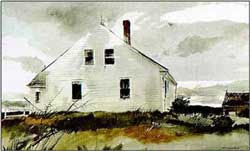Arnold's "Rugby Chapel"
Giving my two cents in this PFFA thread on Shelley, I was reminded of Matthew Arnold, and how much I enjoyed "Sohrab and Rustum," "Empedocles at Atena," "The Buried Life," "The Scholar-Gipsy" and that anthology piece "Dover Beach," when I read them as an undergraduate. This evening, while traveling back home on the train, I started reading "Rugby Chapel" from his Poetical Works , and finished it in the Thai restaurant near my train station. The poem, a paean to his dead father, who was a Rugby headmaster, has the moral seriousness and dramatic vividness of Arnold's best poems. From the middle of the poem: Friends, who set forth at our side, Falter, are lost in the storm. We, we only are left! With frowning foreheads, with lips Sternly compress'd, we strain on, On--and at nightfall at last Come to the end of our way, To the lonely inn 'mid the rocks; Where the gaunt and taciturn host Stands on the thresh...
